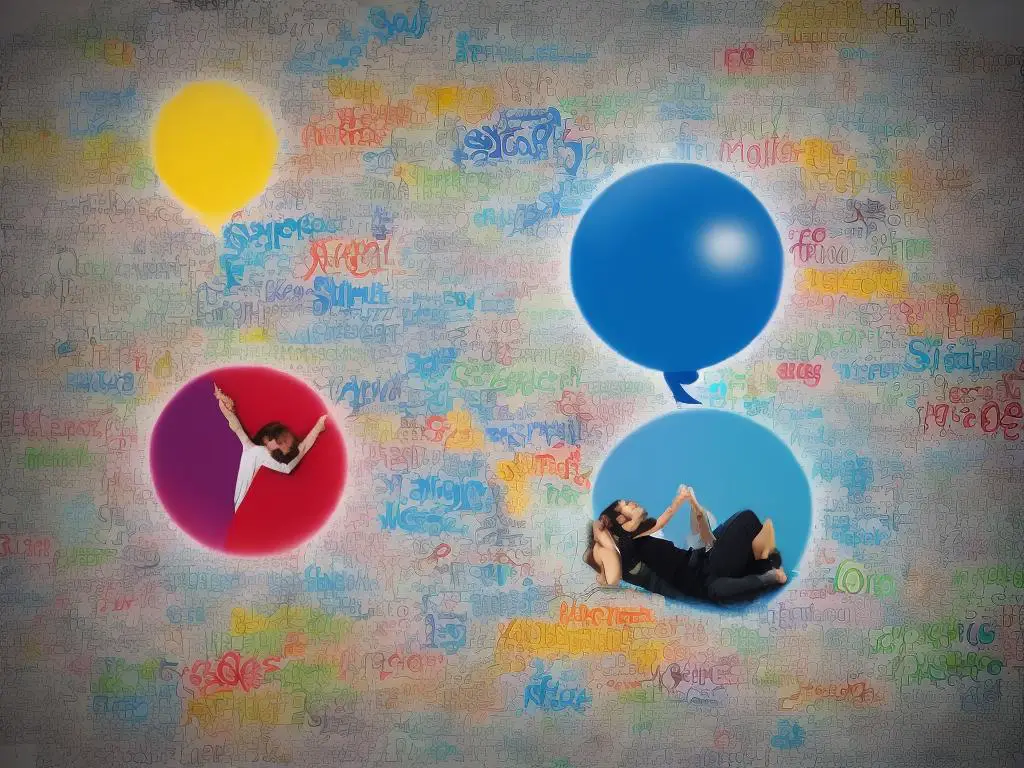Human dreams have long been a subject of fascination, research, and numerous interpretations, ranging from sheer mythological worth to empirical psychological analysis. They are thought to offer unique insights into our subconscious mind, acting as a conduit for revealing our deepest fears, hopes, and desires. This intricacy is evident in dreams involving common themes such as choking and gasping, scenarios that can often be disturbing and emotionally charged. This paper aims to demystify these dreams, delving into diverse interpretation theories and cultural beliefs, to offer a comprehensive understanding of what they may signify on a psychological, emotional and cultural level.
Understanding Dreams and Their Importance
Understanding Dreams: Their Role and Importance
Dreams have always been a fascinating study field for psychologists and scientists. Historically, dreams have played a significant role in various cultures, often considered as divine messages or prophetic signs. Today, many psychologists theorize that dreams serve as a window to our subconscious mind and our innermost thoughts and desires.
Prominent psychoanalysts like Sigmund Freud and Carl Jung explored dreams in their work in depth. Freud proposed that dreams are the unconscious mind’s way of expressing repressed wishes. Meanwhile, Jung believed that dreams represent a broader range of the mind’s activities, including future-oriented thoughts and unconscious archetypes.
So, how does this relate to a specific type of dream, such as choking or gasping in a dream? Let’s dive deeper.
Unraveling the Meaning: Choking and Gasping in Dreams
Dreams can often serve as a door to our subconscious, often encapsulating unexpressed emotions or concealed knowledge. For instance, the act of choking in dreams may denote an individual’s struggle with self-expression or articulate certain caged sentiments. This metaphor of choking can be an emotional or physical manifestation of one’s reality.
Such dreams are often seen as an indicator of underlying anxiety or fear, connecting to one’s inability to communicate effectively or to voice one’s needs adequately. The concept of ‘choking’ can further hint at stifled personal growth stemming from the restrictive territory of fear and emotional containment.
In contrast, dreaming of gasping may depict a sense of urgency or desperation. Such dreams might mirror real-life situations wherein the dreamer is feeling breathless, struggling for survival, or feels nudged to focus on critical life matters that have been sidelined or ignored.
Notably, dreams featuring gasping or choking are common among those individuals who are navigating through significant life shifts, including breaking free from limiting relationships or adjusting to new life periods.
However, it’s important to underscore that dream interpretation is a highly personal exercise that can differ significantly, hinging upon the dream’s context and the dreamer’s personal experiences. The interpretations provided here should be regarded as heuristic pointers rather than decisive definitions.
Dreams provide an unparalleled vista into our subconscious, offering psychological insights, and unearthing new facets of self-awareness and personal growth.

Common Themes in Dreams: Choking and Gasping
Delving into Dream Symbolism: The Essence of Choking and Gasping
Dream interpretation is a subjective domain which is seen through myriad cultural and societal lenses worldwide. However, certain symbols in dreams hold a global significance and can be interpreted in a generalized way. This section delves into the universal symbolism associated with choking and gasping in dreams.
The Symbolism of Choking in Dreams
Choking in dreams typically symbolizes feelings of suppression or restriction in waking life. Dreamers may be feeling overwhelmed with emotions and unable to express themselves effectively. These feelings could be traced back to a specific situation or person causing the dreamer stress in reality.
Choking could also denote a fear of loss or change, especially when it’s accompanied by gasping. The dreamer might be having difficulties accepting or dealing with a particular situation.
The Symbolism of Gasping in Dreams
Much like choking, gasping in dreams might signify feeling suffocated or restricted. However, it could also symbolize a sudden realization or shock in waking life. Gasping often indicates surprise or sudden emotional discomfort. This type of dream could be a reflection of unexpected or surprising events unfolding in the dreamer’s real life.
Common Scenarios of Choking and Gasping in Dreams
Some common scenarios where dreamers might experience choking or gasping involve eating, swimming or drowning, or being strangled. These settings may offer further insights into the nuances of the dream symbolism:
- Choking on Food: It could suggest difficulty in assimilating or accepting a certain situation or information. It might also symbolize complex relationships with food or body image in real life.
- Gasping while Swimming or Drowning: It can indicate feeling overwhelmed with emotions, or point towards unresolved issues that need addressing.
- Being Strangled or Choked by Someone: This represents feeling threatened or suppressed by someone in reality. It could also signify unresolved conflicts with the person doing the choking within the dream.
The Role of Dreams in Psychological Health
While dreams might appear puzzling and shrouded in mystery, it’s crucial to understand that they serve as a psychological safeguard. The act of dreaming enables our minds to grapple with conflicts, combat stress, and process emotionally charged experiences. Therefore, the persistence of unsettling dreams may signal that it’s time to seek the guidance of a mental health professional like a therapist or counselor, as this could point to underlying issues that warrant attention.

Interpreting Choking and Gasping in Dreams
Navigating the Fascinating World of Dream Interpretation
The interpretation of dreams is a captivating art form which has held humanity’s interest across the spectrum of time. This involves making sense of potential symbolism within dreams, which may offer valuable glimpses into an individual’s subconscious mindset. Delving into the rich history of dream interpretation, we find its roots in ancient cultures, including Egypt and Greece, where dreams were given significant cultural and spiritual consideration.
Dreams of Choking and Gasping
Common yet disturbing, dreams involving choking and gasping can often leave a lasting impression. Unlike pleasant or neutral dreams, these dreams generally command attention due to their alarming nature, often waking the dreamer from sleep.
In the field of dream interpretation, choking usually indicates a feeling of being overwhelmed or experiencing high levels of stress or anxiety. In some cases, it could also refer to the dreamer’s struggle to express oneself, indicating a fear of speaking out or being stifled concerning articulating one’s thoughts, feelings, and aspirations.
Gasping for air in a dream, on the other hand, is often seen as a metaphor for struggling in a suffocating situation or wrestling against repressed emotions. This could signify that the dreamer is grappling with issues that are difficult to manage in their waking life.
Different Theories of Dream Interpretation
- Psychoanalytic Theory – Developed by Freud, this theory suggests that dreams are an avenue for one’s unconscious desires and impulses. Therefore, a dream of choking or gasping might represent repressed emotions or unfulfilled desires struggling to surface.
- Cognitive Theory – This theory posits that dreams are a reflection of one’s thoughts and experiences. Thus, choking or gasping in a dream could simply be a representation of a stressful scenario encountered during the day.
- Spiritual Theory – In this perspective, dreams are believed to carry spiritual messages or prophecies. As per this theory, choking or gasping in dreams could indicate spiritual attack or struggle.
Main Points to Consider
Interpreting dreams, particularly those involving choking or gasping, can frequently be a challenging endeavor, as it requires a thorough understanding of the dreamer’s personal life experiences, emotions, and prevailing circumstances. Although these types of dreams may often be associated with negative feelings or experiences such as stress, fear, or repression, it’s crucial to keep in mind that this isn’t always the case. These dreams can have various interpretations depending on the dreamer’s cultural, spiritual beliefs, and individual perspectives. To gain more personalized insights, consulting with a dream interpretation expert or a psychologist is highly recommended.

Psychological and Cultural Views on Choking and Gasping in Dreams
Dream Interpretation: A Psychological Perspective
Across various fields, including psychology, dream interpretation has sparked considerable interest. Renowned psychologist Sigmund Freud believed that dreams are a conduit for the subconscious mind to express repressed desires, thoughts, and emotions, a theory known as the psychoanalytic theory of dreams. In the context of dreams of choking and gasping, Freud might have proposed that such symbols represent suppressed feelings of anxiety or fear, and the inability to express oneself.
Contrastingly, Carl Jung, another influential figure in psychology and dream interpretation, might have viewed choking in dreams as indicative of experiencing limitations or restrictions in real life. Such a dream might suggest the need for liberation from an oppressive situation. Gasping, meanwhile, could symbolize a desperate need for air, potentially symbolizing the dreamer’s desire for freedom or their experience of dealing with stress or exhaustion in their waking life.
Cultural Interpretation of Choking and Gasping in Dreams
Cultural interpretations of dreams can vary dramatically from society to society. For example, in some Native American tribes, dreams of choking or the inability to breathe are considered messages from the spirit world. These visions could represent a spiritual struggle, or the need to rid oneself of negative energies.
In many African cultures, dreams have significant importance, with specific symbols and scenarios conveying different messages. A dream about choking could be interpreted as a warning of impending danger or hardships. Gasping for air in a dream might be seen as a sign that one’s vital energy or life force is being depleted or suppressed.
Across the ocean in Ancient China, dreams were seen as divine messages or forecasts of future events. A dream about choking or gasping could have been interpreted as a potentially ominous sign, perhaps indicating that a difficult situation lay ahead.
Modern Interpretations and Views
Modern dream interpretation has a holistic approach, blending psychological and cultural views with aspects of physiology and neurology. From this viewpoint, choking and gasping in dreams can symbolise a variety of things. One interpretation might suggest that choking relates to feelings of emotional suffocation or being overwhelmed by something in your waking life. Gasping for air on the other hand, could reflect anxieties related to survival, health, or unmet needs.
There’s also a biological perspective to consider. If you’re physically choking or gasping in your sleep, it might be a sign of sleep apnea, a common and serious sleep disorder where breathing repeatedly stops and starts.
Overall, dream interpretation is quite subjective, relying heavily on the individual dreamer’s personal life, emotions and experiences. So, while there are theories and cultural beliefs to provide insight, bear in mind that the most accurate interpretation often comes from the dreamer themselves.

Although dreams involving choking and gasping can cause distress, understanding the potential meanings behind them can provide a profound understanding of our subconscious state and emotional health. These vignettes of sleep encompass a wide array of interpretations across various cultures and psychological theories, often symbolizing feelings of loss of control, being overwhelmed, or suppressing emotions. By exploring these theories and cultural views, we can better interpret these dreams and potentially gain valuable insights into our psyche and emotions. As we continue to explore and unravel the complex tapestry of dreams, we may progressively find the key to understanding our innermost feelings and concerns.
